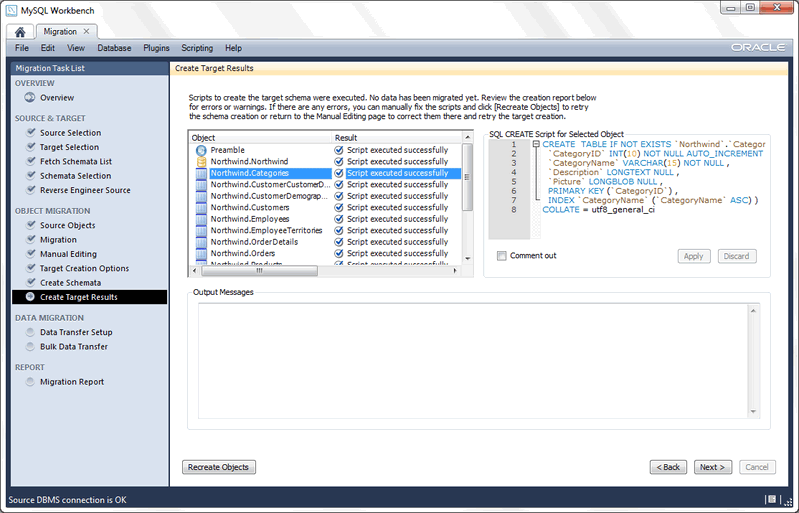MySQL is an open-source relational database management system (RDBMS) widely used for managing and manipulating data. It’s renowned for its reliability, scalability, and ease of use. Created by a Swedish company called MySQL AB, it’s now owned by Oracle Corporation.
Here’s a breakdown of its key aspects:
– Relational Database: MySQL is based on a relational model, organizing data into tables composed of rows (records) and columns (fields). It allows for structured storage and retrieval of information.
– Structured Query Language (SQL): MySQL employs SQL, a standard language for managing databases. Users can write queries to retrieve, insert, update, or delete data in the database.
– Open Source: As an open-source database, MySQL is freely available for use and development. This contributes to its popularity and widespread adoption across various industries.
– Scalability: MySQL is known for its scalability, allowing it to handle both small-scale applications and large enterprise-level systems efficiently.
– Performance: It’s recognized for its speed and reliability in handling complex queries and high-volume transactions, making it suitable for demanding applications.
– Compatibility: MySQL is compatible with multiple operating systems, including Windows, Linux, and macOS. It also integrates well with various programming languages and applications.
– Community and Support: The MySQL community actively contributes to its development, providing resources, documentation, and support for users worldwide.
– Variants and Forks: Variants like MariaDB have emerged from MySQL’s open-source nature, offering enhanced features, improved performance, and compatibility while maintaining MySQL’s core functionalities.
MySQL is extensively used in web development, powering many dynamic websites and web applications. It serves as a backend database for content management systems (CMS), e-commerce platforms, forums, and numerous other applications due to its versatility, reliability, and scalability.

MySQL is a popular open-source relational database management system (RDBMS) known for its robustness, speed, and versatility. Here’s a detailed look at various aspects of MySQL:
1. Foundation:
– Development: Initially created by a Swedish company, MySQL AB, it’s now managed by Oracle Corporation after their acquisition.
– Open Source: Its open-source nature allows for widespread adoption, community contributions, and continual improvements.
2. Relational Database Structure:
– Tables: Data is stored in tables organized by rows (records) and columns (fields), following a relational model.
– Data Integrity: MySQL ensures data integrity by enforcing constraints and relationships between tables.
3. SQL (Structured Query Language):
– Querying: Users interact with MySQL through SQL, a standardized language for managing databases.
– Query Optimization: MySQL is optimized to execute queries efficiently, enabling quick data retrieval and manipulation.
4. Key Features:
– Scalability: It handles varying workloads and scales from small applications to large enterprise systems.
– Performance: Known for its speed and reliability, MySQL efficiently manages complex queries and high-volume transactions.
– Security: Provides robust security measures, including user authentication, access control, and data encryption.
– High Availability: Offers features like replication and clustering for ensuring data availability and redundancy.
5. Applications and Integration:
– Web Development: Widely used in web applications and dynamic websites, powering content management systems (CMS) like WordPress, e-commerce platforms, forums, etc.
– Programming Language Integration: Easily integrates with various programming languages like PHP, Python, Java, and more.
– Compatibility: Supports multiple operating systems, including Windows, Linux, macOS, etc.
6. Community and Support:
– Active Community: MySQL boasts a large and active community contributing to its development and providing support and resources.
– Documentation and Resources: Offers comprehensive documentation, tutorials, forums, and support channels for users.
7. Variants and Forks:
– MariaDB: A fork of MySQL that emphasizes performance improvements, enhanced features, and backward compatibility.
– Percona Server: Another variant offering enhanced performance, scalability, and instrumentation.
8. Use Cases:
-Enterprise Solutions: Used by enterprises for mission-critical applications, data warehousing, and business analytics.
– Startups and SMEs: Preferred for its ease of use, affordability, and scalability, catering to small and medium-sized businesses.
MySQL’s flexibility, performance, and extensive community support have made it a cornerstone in the database management landscape, powering a vast array of applications and systems across industries globally.
